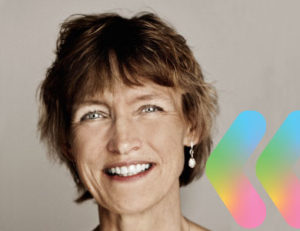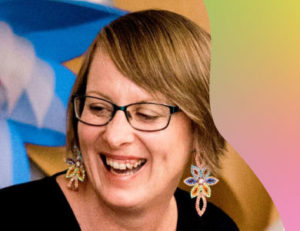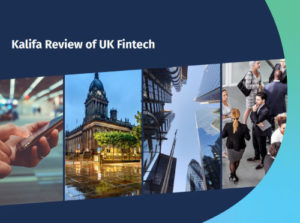
 Females in fintech: do they contribute to growth?
Females in fintech: do they contribute to growth?
Fintech Diversity Radar will let data do the talking
Companies whose boards are in the top quartile of gender diversity are 28 percent more likely than their peers to outperform financially. – McKinsey & Company Diversity Wins Report, 2020
Introducing the Fintech Diversity Radar, a global initiative that aims to accelerate the fintech sector by benchmarking the role of women in scaling fintech firms and the performance of large financial institutions and service providers.
 What is the aim of this research?
What is the aim of this research?
“The aim is to create a common framework for benchmarking gender inclusion in female employment and leadership, financing of female entrepreneurs and business leaders, as well as how companies and communities cater for the financial needs of all genders,” says Denise Gee, co-founder and MD of findexable, the company behind the Fintech Diversity Radar.
 Who should take part?
Who should take part?
All fintech role players and businesses are invited to take part in this research initiative that is in line with the UN Sustainable Development Goals 5 (Gender Equality) and 10 (Reduced Inequalities).
 How will it work?
How will it work?
The Fintech Diversity Radar will:
- Map the global fintech landscape to identify how and where women are employed and assess their progress;
- Advance the employment of women in fintech by identifying practical actions to improve gender balance;
- Build a roadmap for the advancement of female entrepreneurship in advanced and high-growth markets;
- Identify the cause and effect of success in serving female customers, and
- Highlight which countries, regions and firms are out-performing and analyse the reasons for their success.
 What happens after the survey?
What happens after the survey?
The initiative will be implemented through a series of cycles, starting with a real-time global market map and report in August 2021, and culminating in the launch of a real-time digital index.
“What gets measured, gets done. It is about ensuring women in tech is not just an ongoing call to action, but a reality,” says Audrey Mothupi, Fintech Diversity Radar board member and CEO of SystemicLogic.

For fintechs
To take part in this ground-breaking research initiative, click here and complete the survey. Your feedback will help to shape this vital new data set and you’ll be among the first to receive the results of the research.
For incumbents and corporates
The research also targets financial institutions and large incumbent financial service providers, through both quantitative and qualitative data gathering, which we will share shortly.
If you are a Chief People Officer who is making, and indeed, seeing the marked difference that diversity makes in your organisation, get in touch with us at info@findexable.com


Dr Anette Broløs

Dr Erin Taylor
Track, map, enhance, repeat
First data set on gender diversity sets a path for progress
The findings of the Fintech Diversity Radar initiative will be summarised in a comprehensive report on the state of diversity in the industry. The report, authored by Dr Erin B. Taylor and Dr Anette Broløs, will be released in August 2021.
The report will contain valuable new information on gender diversity in fintech, including a real-time mapping of diversity, opportunities for collaboration within related industries and areas for further investigation and improvement.
Anette and Erin have carried out extensive research on women and finance. In June 2020 they published Female Finance: Digital, Mobile, Networked (EWPN/Keen), in which they mapped out the market for financial services for female customers and explored what makes ‘female finance’ different. In March 2021 they will publish a sequel, Female Finance in Figures, which delves deeper into the characteristics of over 100 financial organisations that focus on women – including gender diversity within them.
Interestingly, Erin and Anette learned that women are the majority at all levels of seniority within these organisations. Certainly, this is not the norm in fintech. But, as Anette explains, “We don’t really know much about diversity in fintech, or among female customers, because there is a lack of global data. This prevents the industry from benchmarking and tracking change over time.”
Erin adds, “The Fintech Diversity Radar report is a critical step towards building robust knowledge about diversity in fintech, starting with gender.”
The research for this report will include insights from the survey, questionnaires and discussions with fintechs, and interviews with large financial service providers. It will address questions such as:
- What is the current state of diversity in the fintech industry? Does it differ according to location, company type, company size, or types of products?
- How do fintechs and financial institutions around the world define diversity, and why does it matter to them?
- How can fintechs make use of benchmarking and best practices to improve diversity and, ultimately, business success?
- How might collaborations between fintech networks, commercial banks and innovators support diversity, while improving access?
Finally, the report will signpost areas for future investigation, research and the development of collaborative initiatives.

 The Kalifa Review on fintech indices
The Kalifa Review on fintech indices
Recommendation: “Create a global family of fintech indices to improve understanding and enhance visibility of the sector, as well as attract index tracking hedge funds and investors.”
The leadership of FTSE Russell as an index provider is vital in creating the visibility of any new sub-sector as it emerges. The use of passive asset management is growing as an investment strategy. Over the past 10 years, it has doubled in the UK from 18% to 37% of market capitalisation.
New segments, such as the fintech sector, often fall between two stools. In this case, fintech falls between a financial services sector, which is large, highly profitable, and well followed, but is full of legacy players with low growth and dividend-paying stocks; and a technology sector, where stocks are either categorised as horizontal players, such as cyber security, or a new vertical industry, such as e-commerce. These latter stocks are high growth, often loss-making, and rarely dividend-paying, hence attracting higher multiples and delivering return to their investors through capital growth rather than dividends.
Fintechs as a category can get lost in either of these broad indices. They follow different value creation paths as they face regional regulatory hurdles and the need to internationalise country by country. The creation of a global fintech index will initiate the process of carving out an understanding of this important emerging sector. Representatives from across both the fintech sector and investment community have confirmed that a fintech index could act as a positive driver for increased investment.
Regional and sector indices can and will follow, as the number of companies in each region grows and the unique characteristics of the sector are understood and rewarded by investors. Eventually, when enough UK fintech companies have listed and formed a sub-sector, then a UK index could become a bellwether for all UK fintech stocks and cement the leadership of the UK as a listing destination for this sub-sector.
Our view:by Simon Hardie, Co-founder and CEO “The Kalifa Review makes a vital point. Investors in fintech today are beset by a range of challenges – of market knowledge, geography, company scale, even of industry classification [that continues to evolve]. Moves to standardise the way we classify, categorise and invest in fintech – coupled with more reliable data on the fintech landscape – are essential to scale and digitise investment in a marketplace that is becoming systemically important.” |
 |

 “You go, you learn” – why it matters to be ahead of your game
“You go, you learn” – why it matters to be ahead of your game
An interview with Annette Evans, VP People & Culture, Global Processing Services (GPS)
In this episode of the findexable Fintech Diversity Radar thought leadership series, Annette Evans, VP People & Culture at Global Processing Services (GPS), shares with Chisom Ezeilo her professional story, GPS’ constant strive to build a culture that helps secure an equal future for their female employees, customers and the communities they serve, and some advice for women aspiring to become thought leaders in their industry: in order to succeed, learning is key.

 Talent, opportunities and embracing change
Talent, opportunities and embracing change
An interview with Alexa Fernandez, independent fintech and innovation advisor and champion of the Fintech Diversity Radar initiative.
Alexa Fernandez, independent fintech and innovation advisor, shares her story with Chisom Ezeilo, Diversity and Inclusion Analyst at findexable’s Fintech Diversity Radar, highlighting the challenging journey to the top and the need for passion, determination and commitment in order to succeed: “Learn all about it! Study fintech and startups, and talk to entrepreneurs in their language. I encourage anyone looking to enter this space to do their homework and network like crazy.”
CE: Please tell us about yourself and your journey into fintech and founding Hourglass Innovations.
AF: I discovered fintech via Level 39 in Canary Wharf, London. When I was working in Corporate and Investment Banking, I was charged with organising a tour for the Head of BBVA’s Corporate Venture Fund. I was amazed to find this world of innovation and entrepreneurship, and made it my mission to become a part of it! I was given the opportunity to join a new team at BBVA, New Digital Businesses, which was like a startup within the bank, where we were building, buying, investing and partnering with fintechs. I then went on to work in the Innovation team, with a focus on creating partnerships between fintechs and business areas within the bank. Finally, I worked at a fintech, doing the inverse. All of that experience has led me to conclude that innovation is an hourglass.
Innovation adoption at corporations takes on the shape of an hourglass: it’s promoted at the top by management and embraced at the bottom by employees working with customers. But it gets stuck with middle management, and innovation drips, like an hourglass. I decided to go independent and advise companies through my new company, Hourglass Innovations.
CE: What is your opinion on the current state of workplace hiring from a diversity perspective? What is your experience?
AF: I don’t think women and people of colour are given the same chance as white men. I feel we are being underestimated and rarely given the benefit of the doubt. I also believe that women – more so than men – tend to be judged by our appearance, even though no one will ever admit to it.
My experience has been of men being dismissive of my education and experience. There is one interview that really stands out for me: the COO of a growing fintech was interviewing me for a Head of Partnerships role. He spent most of the time talking about himself. When he finally gave me the chance to speak, he only gave me five minutes, and immediately concluded that “I didn’t have the right network, nor the right profile for the job”. What was really offensive about that comment is that I introduced the founder to his first angel investor. Had he taken the time to get to know me and studied my CV (turns out he hadn’t even read it), he would have understood that I could be a great asset for the fintech. Instead, he already had a “picture” in his mind of the kind of person he wanted to hire, and I didn’t fit that image. This has happened to me several times. I find it sad, as fintechs are missing out on hiring great people and diversifying their teams. This is, in my opinion, the biggest problem with hiring and so-called diversity initiatives. The only way to change it is to change the mindset of the men who are doing the hiring.
CE: As a champion for the Fintech Diversity Radar, tell us more about the idea around, ‘It is not you, it’s them.’ What is the story behind the quote?
AF: Women are constantly being told we are not good enough. Don’t believe it. Be confident in yourself and push back. Just remember: It’s not you, it’s them.
I’ve been told numerous times by men at work and during job interviews that I am not good enough. They’ve told me things like “you don’t have the right skills; you’re bossy and pushy; you are only good at one thing and it’s not what we need” amongst many other things. And sometimes they compare me to other men/colleagues and tell me how much better those men are than me.
At the beginning, I believed them and questioned myself repeatedly. But I started to share my experience with friends, and they too had similar stories. I paid closer attention, and started to notice a pattern: men are dismissive of women’s experience and education and feel entitled to tell us that. This has enabled me to understand that it’s not me, it’s them. It gave me the courage to stand up for myself. Several months ago, I was told (by a man) that I didn’t have the right skills for the job, to which I responded “You’re wrong, and here’s why”. It felt great!
CE: What advice do you have for anyone looking to enter the world of fintech?
AF: The same advice that was given to me by a venture capitalist when I was trying to enter the world of fintech: learn all about it! He told me I needed to study fintech and startups, and be able to talk to entrepreneurs in their language. I made it my priority to do just that. I did it by attending hackathons, events and networking sessions after work and on weekends. I considered myself lucky at the time: I live in London, one of the epicenters of fintech, and had access to all those events. Now that events are virtual, anyone can attend them, not to mention it’s easier and less time consuming, as you don’t have to factor in trekking across a rainy London to get to all those events! It took me one year to eventually get into the fintech world, but all the time and energy I put into it was well worth it. I encourage anyone looking to enter this space to do their homework and network like crazy.
